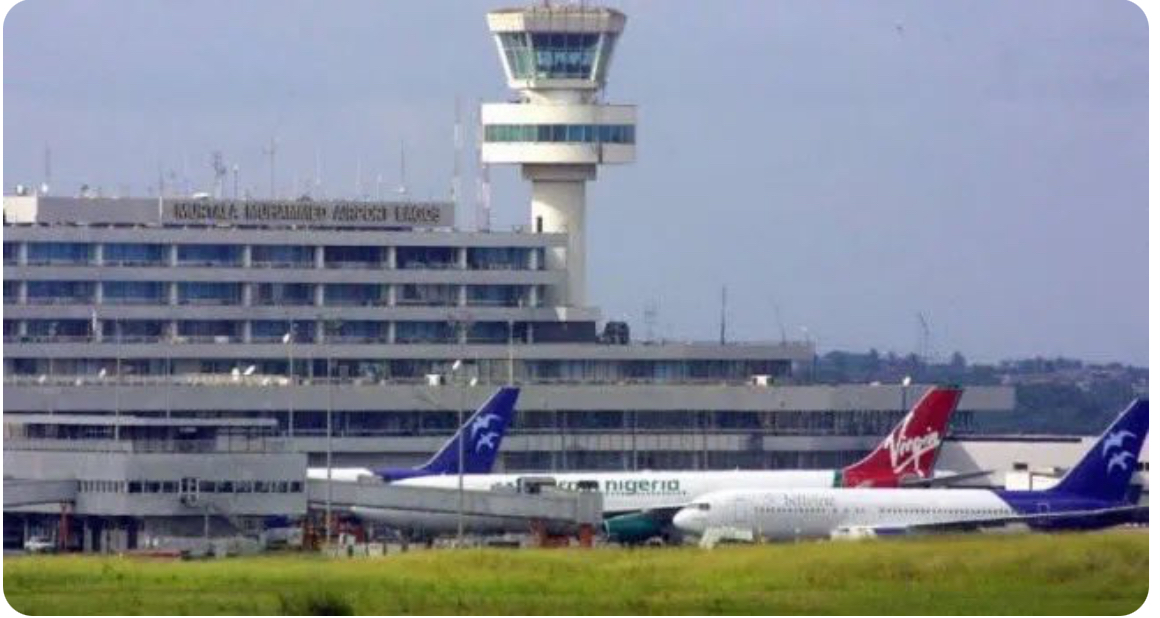Approval for the rehabilitation of Murtala Muhammed International Airport (MMIA) Terminal One, at an estimated cost of N712 billion, symbolises the penchant of the federal government for awarding elitist contracts at a whopping cost but without a flinch on probity or public demand for one. The justification of the repairs is readily foreshadowed by the opacity of the approval method. Yet, public office holders should know that in modern matters of public good and infrastructure, good intentions are no substitute for probity.
Typical of the take-it-or-leave-it attitude to the Lagos-Calabar Coast Highway project, or the International Conference Centre, Abuja, the Federal Executive Council (FEC) recently awarded the airport project without any hint or budgetary provision for the grand project. The Minister of Aviation and Aerospace Development, Festus Keyamo, who has become the face and lead solicitor of the project, argued that the move was driven by the urgent need to replace decaying infrastructure, expand capacity, and bring the nation’s busiest airport in line with modern global standards. He explained that MMIA, International Terminal One would be stripped to the carcass and fully rebuilt, with all mechanical, electrical and plumbing systems replaced—an award to CCECC that also covers Terminal Two works (apron expansion, access roads, bridges and associated infrastructure).
It is true that the almost five-decade-old MMIA facility has outlived its usefulness. The old terminal, modelled after Amsterdam Airport Schiphol, Amsterdam, Holland, was constructed and officially opened on 15 March 1979, as part of a broader master plan to ensure sufficient capacity of 200,000 yearly passenger traffic at that time. Today, it is the major gateway into the country, facilitating over five million passengers yearly. Clearly, it has become an eyesore for which the new Terminal Two and a remodelled Terminal One should adequately cater.
But there are questions that agitate the mind for which a transparent government must endeavour to answer. Besides the criticism of the cost as being too much or too little, did the project go through the Bureau of Public Procurement (BPP)? Was the cost ever budgeted or arrived at by impulse, and the need to show the government is busy, and possibly rename the new Terminal after an overrated public officer? What is the penchant for elitist projects? The 2027 reelection plans? Why is the project such a priority of the Federal Government at a time when the ministry is also pushing to concession the airports to private operators? Why invest that heavily only to soon give it out to a management concession? The lack of due process in the exercise is confounding.
In all these, Mr. Keyamo is fast appearing like an activist who is excited by and thrives in controversies. In matters of aviation, for which the lawyer has no background, he routinely shows up as an incident commander rather than a policy driver expected of a minister. That explains his hyperactive roles in publicly ordering the Nigerian Civil Aviation Authority (NCAA) to shut down Dana Air, negotiating slots for Air Peace airline on the street of London, becoming the judge and ditching selective justice to unruly passengers and errant airlines on the X platform, and also hopping from one media house to the other in defence of the award of N712 billion rehabilitation of MMIA.
As innocent as those actions appear and as hands-on as Keyamo wants to be seen, they are tantamount to overzealous meddlesomeness and usurpation of the statutory duties of aviation agencies. It falls short of the remit of an aviation minister to give orders to operators on behalf of a supposed autonomous apex regulator like the NCAA. Neither is it the responsibility of the Minister to take over the duty of the Federal Airports Authority of Nigeria (FAAN) – the agency of professionals who are constitutionally recognised to manage the affairs of airports and aerodromes nationwide. To keep violating International Civil Aviation Organisation (ICAO) rules and Standard Operating Procedures (SOPs) is to keep making Nigeria a laughing stock in the highly specialised and regimented global aviation community.
Lest we forget, it is such a collection of errors that became the categorical mistake called the new international Terminal Two of the MMIA, built with counterpart funding from the Chinese government. Then Minister of Aviation, Stella Oduah, and her group of consultants unilaterally decided to site the new terminal in the wrong location, without consideration of a parking lot for wide-bodied aircraft that the terminal was built to serve! To date, the $100 million worth of new facility is grossly underutilised and part of the defects the terminal one rehabilitation aims to correct now costs the country more in scarce public funds. Similar infrastructure in Abuja was not spared the fate of structural defects, having been built blocking the control towers and the fire tender! It cost the last administration an additional N10 billion to fix those avoidable errors.
These are pointers to the saying that good intentions are just never enough. The process of public infrastructure must remain public, carefully backed by due process, transparency and painstaking execution by motivated professionals within the agencies. Enough of outsourcing duties and services to external cronies that are not any better than in-house professionals. There should be an end to the arbitrary award of public funds. That is why they are public and not private funds. Nigerians deserve to know how every kobo is spent. It is the law, not a privilege.
Credit:The Guardian

